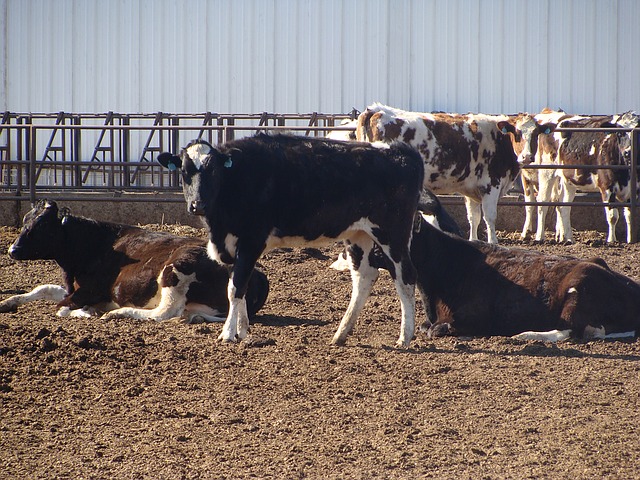Thymox, a clean technology company dedicated to animal health, crop protection, and environmental disinfecting, is determined to replace “bad chemicals” used in agriculture with non-toxic and environmentally-friendly alternatives. Investors are on-board, and have returned to back the Sherbrooke, Quebec-based startup in a Series B round as Thymox readies greater distribution, new partnerships, and greater potential product applications for 2017.
Oil and Water
For a startup, Thymox, which operates in North America, Asia, and Europe, has inked deals with some major industry players including Cargill and China’s Rumen. Meanwhile in the United States, Thymox is close to signing a massive distribution agreement with a major player in animal foot baths, which is the primary arena in which the company operates.
Thymox was founded on the idea that the best way to attack and kill dangerous pathogens found in nature was to use nature’s own arsenal. They found that thymol, the active ingredient present in the essential oil of the herb, thyme, is effective in killing pathogens that cause animal diseases, however, with one key benefit.
While extremely effective, thymol is also non-toxic so that animals can actually consume the plant-based chemical, evidenced by the fact that thymol is used in household products such as Listerine mouthwash. Thymol targets dangerous pathogens that are small compared to the size of a living cell, and has a relatively easy time puncturing a cell membrane and killing the pathogen, leaving living cells unharmed.
“That’s the background of the technology whereby we’re taking really cool molecules found in nature and using them in a good way,” Frank Palantoni, chief executive of Thymox, told GAI News.
Meanwhile, thymol has been available in nature for a long time, but the rub is that it is an oil.
“If you put it in water, it separates like salad dressing. This is not good commercially. You don’t want something that separates. Technology has enabled us to use this very oily substance in a way that it stays stable when diluted in water,” said Palantoni, adding that the technology is patented by the company.
Product Applications
Animal health issues are a major cost-sink for agriculture, costing the dairy industry some $1 billion in lost production. Indeed, as much as five to 10 percent of the world’s 250 million cows suffer from a disease known as Digital Dermatitis, a condition that has been around since the 1970s that surfaces as lesions in a cow’s hooves and is painful enough to stop an 800-pound animal in its tracks.
Cows contract the disease, which is highly contagious, by standing in manure, a problem that has been exacerbated by the rise of modern day agricultural production methods that have relocated cows from fields and pastures to organized barns with concrete floors. As a result of the concentrated living space, they trudge through much more manure over abrasive made-man surfaces than they otherwise would have in an open field.
Until now farmers have been treating Digital Dermatitis primarily with some very toxic substances, including formaldehyde and copper (a heavy metal) sulfate to clean the cows’ feet and treat lesions, according to Palantoni. These products have limited the consequence of lameness that results from the painful sores, but they don’t eradicate the problem. Plus, the toxic and non-biodegradable chemicals are damaging to both farmers’ health and the environment.
Enter Thymox, which according Palantoni is a game-changer for the industry.
“Our product is effective in killing treponemes that penetrate the cow’s skin and cause lesions. What we’ve seen in testing is that the lesions start to heal, which is different than results with copper sulfate or formaldehyde,” said Palantoni.
Another application for Thymox is crop protection, where the product similarly combats bacteria to keep crops and soil healthy. In particular, thymol has been proven effective against a challenge facing Florida’s orange growers known as citrus greening. The disease, which currently has no cure, stems from a flying insect dubbed the psyllid, which originates from China. Once the bug bites the leaf of an orange tree, the tree becomes infected with a bacteria. As a result the tree produces 60 percent fewer oranges and dies in a few short years.
“One of our partners has been very successful in using Thymox to control the disease citrus greening with oranges in Florida,” said Palantoni.
Opportunity
Cycle Capital, an early backer of Thymox, recently returned to up its commitment for a Series B round currently being raised by the company, which includes repeat investors and which is expected to close at the end of this month.
“Our work and our mission is to support people for a long time. We’re not there to flip companies. We’re not there for six months. We are a builder with the CEO and their team,” said Cycle Capital founder and managing partner Andree-Lise Méthot, who added that the venture capital firm has a view of four-to-eight years. “What is important is to build a real foundation and the best thing you can, and the market probably will be there. And if not, then adjust the strategy at the company level.”
Thymox is also in the midst of formalizing another deal with a major U.S. distributor to market a household disinfectant comparable to bleach but safer, though Palantoni declined to name the partner. There has been a great deal of interest expressed to Palantoni by the emerging cannabis industry, as that industry has expressed a need for disinfecting products and pest repellents that are naturally and botanically derived to protect the health of their consumers.
–Gerelyn Terzo

